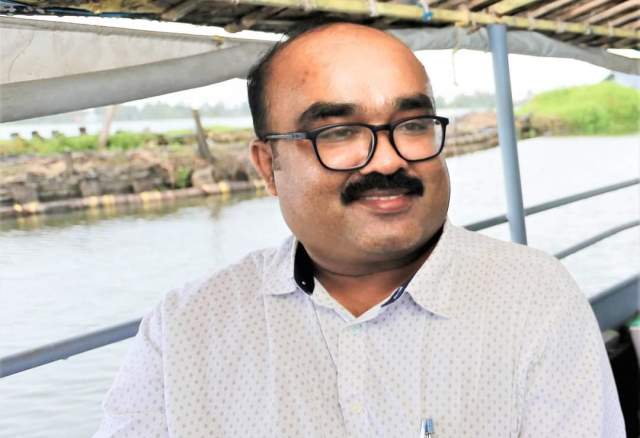KA Shaji, a South India-based journalist who writes on politics, human rights and environment, traces the rise of Popular Front and its communal agenda
Going by the genesis, a collective called Muslim Cultural Centre (MCC) was formed during the late 1980s in the Nadapuram region of Kozhikode district in north Kerala by certain wealthy Muslims of the region to fight the might of the agricultural labourers’ union of the CPI (M). Over the years, the MCC turned into the prototype of the National Democratic Front (NDF), which was later rechristened as the Popular Front of India (PFI).
In Nadapuram, most agricultural labourers were Hindu Ezhavas and tenants of wealthy Muslims. Gulf money also contributed to the financial growth of Muslims there while the agricultural workers were given peanuts. Most Muslim landlords were traditionally activists of the Indian Union Muslim League (IUML).
CPI (M) firebrand leader A Kanaran inspired the agricultural workers to engage frequently in class struggles against the landlords. The struggles seeking solutions to injustice and inequalities, later evolved into communal clashes. Thereby ideology and politics disappeared, communal polarisations erupted and became entrenched. The clashes turned into Hindu-Muslim conflicts.
When the Ayodhya movement gained strength in the 1990s, MCC became the Babri Masjid Protection Committee. Its leaders wanted a state-level permanent mechanism to mobilise Muslim youth against both the BJP-RSS and CPI (M). On November 14, 1993, the NDF was formed. The shilanyas at Ayodhya created resentment among the Muslims in Kerala. But, IUML, the moderate alliance partner of the Congress in the state, failed to address the anger. Movements initiated by Abdul Nasar Mahdani and Ibrahim Sulaiman Sait were dubbed cult worshipping. In this context, the old MCC activists of Nadapuram coordinated radical elements across the state so as to ‘protect Islam’.
The NDF and PFI both began as cadre-based outfits. They recruited only fundamentalists. They organised closed-door training sessions. There was no transparency in their activities. While terming the BJP-RSS as their main enemies, they always resisted CPI (M) and left politics tooth and nail too. They attacked the IUML, accusing it of being a pack of cowards. It blamed the Congress for all the issues faced by Muslims in the country.
ALSO READ: ‘Every Patriotic, Peace-Loving Supports Ban on PFI’
The organisation infused hatred against other religions among young Muslims recruited from madrasas across the state. Religious teachings imparted to them declared that there is nothing beyond Islam’s teachings. Indeed, the NDF’s first target was not BJP or RSS, but those Muslims who were involved in inter-religious marriages. Many lost their lives, others limbs. It found blasphemy as the most heinous crime. The hand of a Christian professor was chopped off for alleged blasphemy.
The NDF or PFI have never been democratic. They are flush with funds but its source has largely been unknown. They ruined the IUML in the southern districts of Kerala and targeted moderate Muslim leaders. Many BJP and CPI (M) cadres were also killed. There have been murders, chopping off limbs, attacks against inter-faith marriages. The PFI played a pivotal role in the communal riot at Marad beach in Kozhikode. In recent years, it became a pan-India organisation through mergers and expansions.
In fact, the PFI is an Islamic version of the RSS. Banning it alone would not meet any purpose. It has to be opposed politically and ideologically. Democratic engagements with the community by secular forces is the sole and ultimate solution.
Indeed, the ban and the arrests of their members reek of BJP-RSS vested interests. But it is also true that the PFI mobilised Muslims on communal grounds. It wanted Muslims in the country not to have any democratic engagement with secular or democratic forces. Communists and the Congress were its proclaimed enemies. It favoured militancy. It has actually jeopardised the ‘Muslim situation’ in India. It has made ordinary Muslims insecure. It has caused severe damage to the Muslim cause and identity.
However, the entire syndrome exposes the limits of minority communalism. A single police action by a majority government can destroy any minority communalism build-up. But the ordinary Muslim will have to pay the price. They will get further alienated.
As long as the BJP-RSS is in power, no ultra-fundamentalist or rabidly communal Hindu organisation can be banned in India. They all have government support. The previous bans on RSS failed to yield any results. Democratic mobilisation of people in secular platforms is the only option to fight the BJP-RSS. Political education can help India survive the BJP-RSS. Minority organisations must stand solidly with secular, inclusive and democratic forces.
